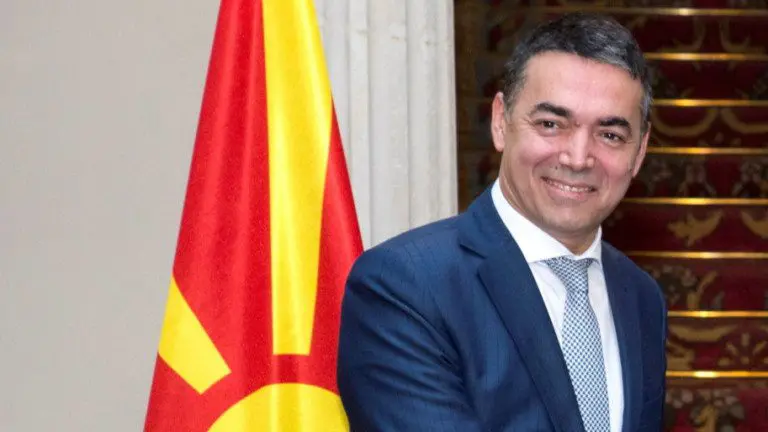This was stated by the Macedonian Deputy Prime Minister for European Affairs Nikola Dimitrov.
The Portuguese view is based on the negotiating framework proposed by the European Commission – the paragraph on the Macedonian language to remain as formulated – the Macedonian language and the envisaged unilateral (unilateral) manifestation of Bulgaria in one of their positions.
Regarding the statement of the Portuguese Secretary of State for European Affairs Ana Paula Zakaria, Dimitrov said that yesterday they had many contacts with Lisbon and with representatives of Portugal, ie. the Portuguese Presidency that, in his words, they had said that: “The statement absolutely does not reflect Lisbon’s position, which remains in line with the Portuguese proposal, and regret is expressed in this regard.”
We remind you that Anna Paula Zakaria stated that Portugal has understood the Bulgarian point of view on the dispute with RS Macedonia. Bulgaria cannot approve the non-fulfillment of the Neighborhood Agreement by RS Macedonia, the attempts to steal Bulgarian history, denial that the Macedonian language is based on Bulgarian and was drawn up in 1945 and therefore imposed a temporary veto at the beginning of RS EU negotiations Macedonia, but gave the green light to Albania.
“The issue of the Macedonian language is key for us,” Dimitrov said. Nor do we have a mandate to think about negotiations. We will enter Europe as Macedonians who speak Macedonian and we hold on to our right to defend our dignity regardless of any statements – today or in the future. For me personally, this was a rather unpleasant statement, said Dimitrov, answering news questions at today’s press conference dedicated to the National Program for Voting European Union Law.
Asked what the reaction to this statement would be, Dimitrov said that the public often has some kind of confusion regarding diplomatic reactions when we have such occasions.
Yesterday, on several levels, I spoke personally with Lisbon, the Ministry of Foreign Affairs, and also with the Minister of Foreign Affairs, Buhar Osmani. What is important in diplomatic communication, Dimitrov asked. It is important to express your position clearly, to express dissatisfaction, to express protest. All this was done several times yesterday.
What we received was confirmed, among other things, by the brief statement of the Portuguese ambassador, who is not responsible for us in Belgrade, given, if the memory of Deutsche Welle did not deceive me last night. According to him, Portugal will never do anything that would harm finding a solution, remains firm in its proposal and does not intend to enter into a substantial debate on cultural issues, identity issues, etc.
He reiterated the government’s position that the Macedonian language is one of the main characteristics of the identity of the Macedonian people, internationally recognized and codified with its unique specifics and inscribed on the UN identity card of Northern Macedonia. The Macedonian language is an expression of the inalienable right of the Macedonian people to self-determination and dignity, according to Dimitrov.
According to him, there is a paragraph in the draft negotiating framework issued by the European Commission, according to which all European legislation will be translated into Macedonian and that the country will have to have a sufficient number of translators during membership. So far, we have translated about 80,000 pages of European legislation, translated another 16,000 pages and are working on several thousand new pages of translations, Dimitrov added.
We remind you that Bulgaria confirmed its position on the European perspective of Northern Macedonia during the regular meeting of the General Affairs Council in Luxembourg.
On June 11, 2021, after the last meeting of the Joint Multidisciplinary Expert Commission on Historical and Educational Issues with the Republic of Northern Macedonia, its chairman from the Bulgarian side, Prof. Angel Dimitrov, announced another failure. “The last hours have shown that it is difficult to reach an understanding for a text about Gotse Delchev,” said Angel Dimitrov.
In general, the negative findings of failure are repeated after each of the meetings, as the talks were interrupted before the elections in the Republic of Northern Macedonia, which took place last year. At the same time, both the ruling and the opposition in Northern Macedonia expressed a number of hopes that after the change of power in our country there would be a reversal of our position and the veto imposed by Bulgaria on the negotiating framework for EU membership of RNM and Albania.
At the same time, attempts at influence by a number of EU member states are increasing, with German Foreign Minister Heiko Maas speaking at a virtual meeting of the Berlin Foreign Minister.







